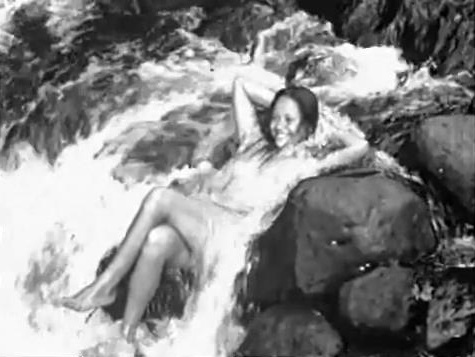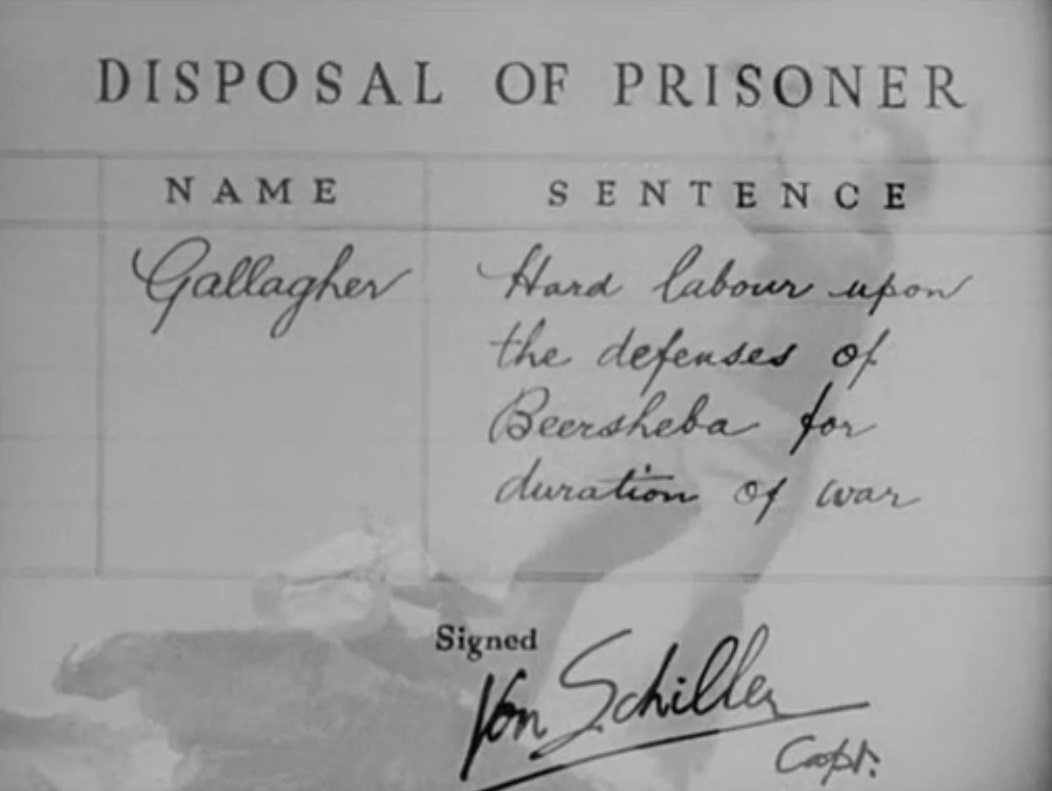In
the Wake of the Bounty

A
distinctly dangerous position, after Eisenstein’s The Battleship Potemkin, before Dmytryk’s The Caine Mutiny or LeRoy &
Ford’s Mister Roberts (or
Logan’s Ensign Pulver).
It is the
Australian position, of a surety. “It took us six months to gather
breadfruit in Tahiti.”
Solus Christian. “Mutiny, piracy, lust, and
now—God!—where will it all end?” Enter a native girl, to his
comfort.
“There are
no slackers upon this little island, every man does his bit.”
Forty
Thousand Horsemen

Jerusalem,
the Biblical imposition of the Hun, worse than the Turk.
Cairo,
Kipling’s sergeants three playing Two-up with the natives down to their
loincloths.
“Battle of Romani”, the Sinai firing line,
“poor fools, they’re half-crazy with thirst!”
Gaza,
“the oldest fortress in the world”, a setback.
Red
Gallagher’s brief escape from German captivity and right out through the
Turkish lines under fire is very happily remembered by John Huston in Beat the Devil.
A marvelous
picture under the sign of King Vidor’s The Big Parade, and in which the charge at Beersheba is justly
commended by all writers as one of the greatest glories in the cinema (the
explosives mining the city are a feature of Clément’s Paris brûle-t-il?, to be sure).
T.S. of the New York Times, Gotham
sophisticate, “did we say the story was foolish? It is. But however crude... Yippee! for a
brawling, boisterous entertainment.” Variety,
“the story is slight...” praiseworthy anyhow. TV Guide, “early Aussie effort... sewn into the action
footage is the inevitable romance... on the way to a smashing finish”. Hal
Erickson (Rovi) finds the plot too difficult to
follow, “all such trivialities are forgotten...”
A successful
analysis will be found in Massacre Harbor
(“The Last Harbor Raid”, The
Rat Patrol), dir. John Peyser.
The
Rats of Tobruk
Who received
their name from Lord Haw-Haw whilst defending against Rommel.
Chauvel’s
masterpiece has some of them go on to the Pacific, a complete meditation
concerning the war from an Australian viewpoint, noble and beautiful things
perish to give the boss drover a mind worth having.
The twin gauges
of the work may be seen in King Vidor’s The Big Parade overall and
Stanley Kubrick’s Full Metal Jacket in another way, the song of
the ANZACs entering Tobruk, for example, the fight against the sniper in the
East.
A monument to the
first who stopped a Blitzkrieg, owing to superior tactics lucidly explained in
the film, and kept the Jap from getting Down Under, among other things.